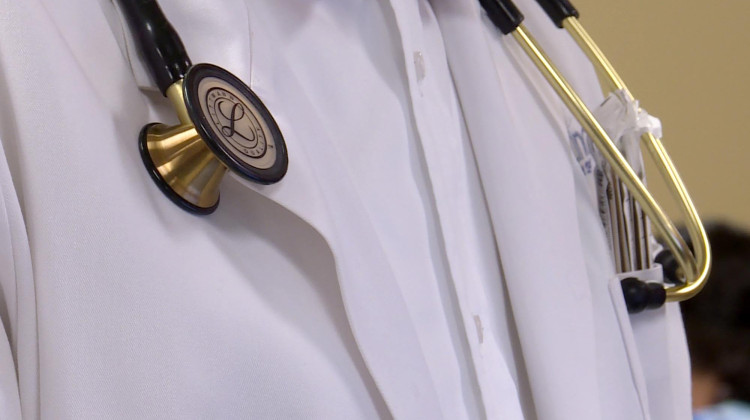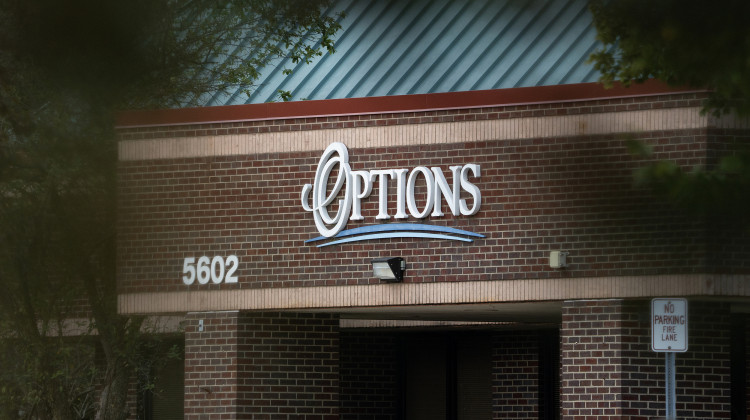
Anne Buchholz, 70, lives in Martinsville, Indiana. Her adult daughter has struggled with opioid addiction on and off for the past 12 years and Buhchholz said stigma made it hard for her to find support for herself on the journey.
Submitted photoWhen someone has a substance use disorder, it can upend their lives, which also affects their family members and loved ones.
But those family members may find it difficult to find support and talk about their experience because of the stigma surrounding addiction and substance use.
Anne Buchholz is 70 years old and lives in Martinsville, Indiana. She said her adult daughter has struggled with opioid addiction on and off for the past 12 years and it has taken a toll on Buchholz’s mental health.
Buchholz got connected with Parents of Addicted Loved Ones — a support group for family members of people with substance use disorders. She said the group has helped her learn about her own misconceptions about addiction.
Buchholz spoke to WFYI health reporter Darian Benson as part of Side Effects Public Media and WFYI’s series Voices of Recovery and Hope. Click here to listen to the full series.
This transcript has been lightly edited and condensed for length and clarity.
Stigma plays a big role in how parents feel and how parents treat or, you know, see themselves.
I was always thinking I was a failure and my daughter's a failure. And there's all this stigma. No, I wasn't going to tell anybody at church about this. I had a few friends that I could blow off steam and tell about. But you know, when some of the friends would give me horrible advice, you just keep your mouth shut because there is a stigma.
I couldn't tell everybody I have a daughter addicted to heroin. I mean, how does that sound? What kind of mother am I?
So I'm trying to get over that. I wish it wasn't there, because substance use disorder is a disorder or a disease, just like diabetes is.
I still remember I was at some conference a long time ago. And they were talking about, you know, you're not a drug addict, you have substance use disorder. And I thought, oh my goodness, that's the most ridiculous, politically correct term I've ever heard in my life to describe somebody who's an addict. I thought that was appalling. And I didn't believe that it was a disease.
And that's what most people think: It's a flaw in you that you don't have the strength or the willpower to get over it.
And yeah of course, yeah, I thought that way, because that's how it's always been kind of portrayed or talked about, in that it's very shameful.
People need to get educated about how it is a disease and to not be so down on people that are using or are or alcoholics and such.
And I think it's starting to change a little bit. I mean, it's somebody's mother, daughter, son, uncle, cousin, you know, it's somebody's kid, and so you really can't look down on them because it's just somebody's kid with a disease. You don't look down on somebody that has diabetes or cancer.
Through Parents of Addicted Loved Ones, we do provide hope and that just made a big difference to me, having that hope that she will get better this time, she will lead a productive life and everything. So there is hope. I think that's the biggest thing about PALS — there is hope.
Contact WFYI health reporter Darian Benson at dbenson@wfyi.org. Follow on Twitter: @helloimdarian.
This series was created in response to community feedback around substance use issues collected by Side Effects Public Media’s Brittani Howell. You can read more about her substance use-related community engagement work here.
 DONATE
DONATE








 Support WFYI. We can't do it without you.
Support WFYI. We can't do it without you.